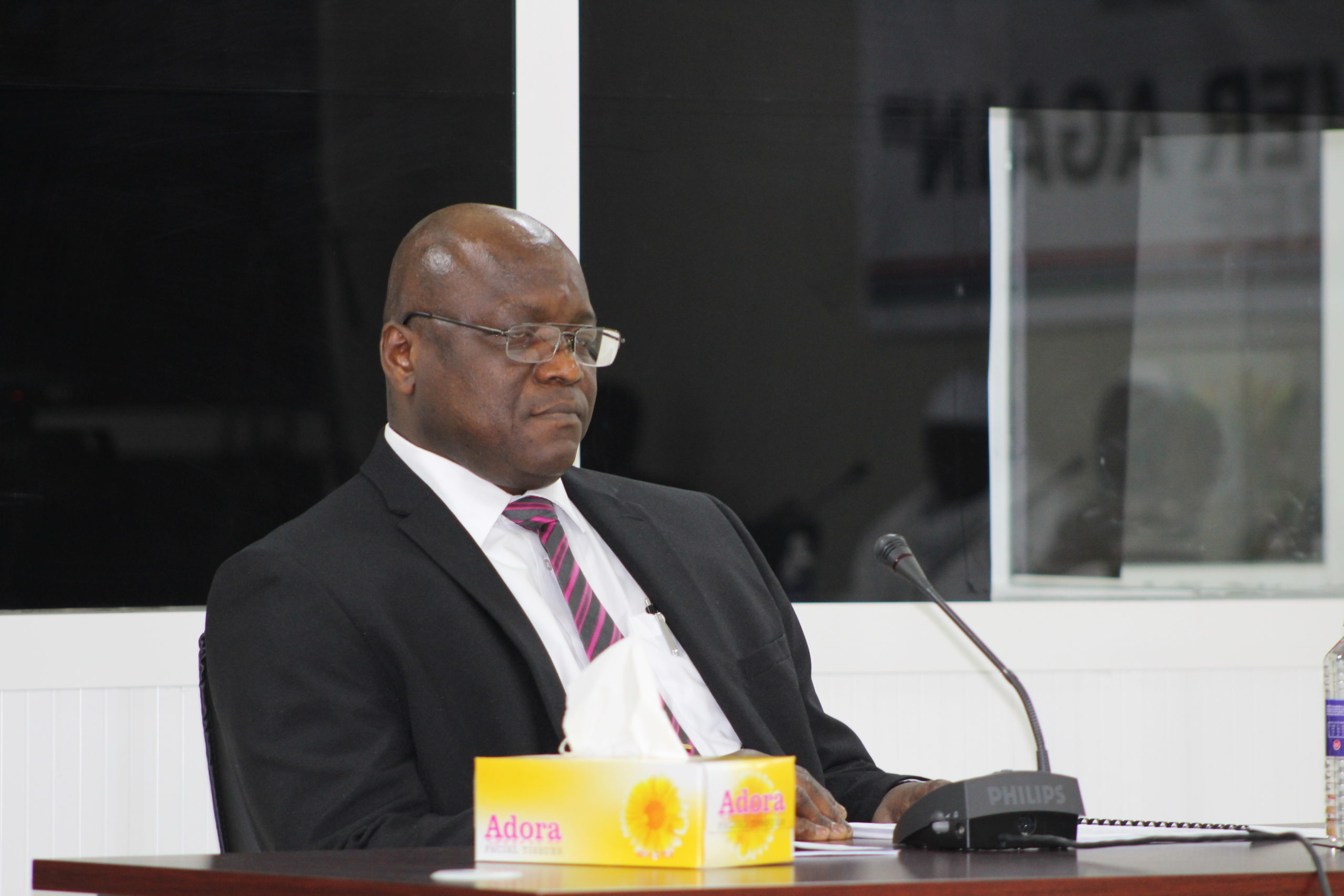RSM Jeng says Nigerian soldiers were aware of 1994 takeover
By RSM Jeng’s account before the Commission on Tuesday, the presence of Nigerians in the country, interference in the army by civilian authorities and growing indiscipline are primary reasons there was a successful coup. Jeng was among the soldiers who were detained and tortured at Mile 2. He became subject of a mock execution.

RSM Baboucarr Jeng has told the Truth Commission on Tuesday that the leadership of the Nigerian soldiers who were in the country to train Gambians were complicit in the coup that led to overthrow of democratic rule in the country.
Gambia enjoyed a fairly vibrant democracy from independence in 1965 until a military takeover led by former president Yahya Jammeh in July 1994.
Prior to the coup, there were several rumours of a planned coup as there were several mutinies and disgruntlement in the army, several witnesses before the Commission said.
Jeng, Commission’s nineteenth witness who was a senior person in the army at the time of the coup, said the Nigerians were complicit.
Jeng said on the day of former President Sir Dawda Jawara’s return from United Kingdom on July 21, Jammeh who was carrying a pistol was asked by him and the Nigerian colonel to put away the gun.
He said he had no authority to disarm Jammeh and thus told the Nigerian soldier in charge call Colonel Akogi to disarm him.
“Colonel Akogi wanted to take Jammeh’s gun from him and Jammeh brushed his hand and told him (at the airport): “You are a hypocrite. You are acting as if you don’t know what is happening”,” said Jeng on Tuesday. .
For him, that was a comfirmation of the suspicion he has long had. But Jeng was not also unclear about the difficulty of his relations with Nigerians. He and the Nigerians had a very difficult time especially General Dada until at a point that they started monitoring him.
Jeng said it was not unusual for Jammeh as the head of the military police to have a weapon but it was not supposed to be on him at that point. He said he then took Jammeh’s gun to Akogi’s car.
The Nigerians were in the Gambia on technical assistance to help the country build a professional army.
The former commander of the force, General Dada, had his tour of duty finished before July 1994. But according to several witness accounts, Dada refused to leave for Nigeria and also refused to cede the command responsibility to the new General Lawan Gwadabe.
Jeng said the Nigerian soldiers in the country were more loyal to Dada than Gwadabe who just arrived. “Gwadabe came into the country and arrive at the airport but no one went to receive him,” said Jeng.
In addition to that, Gwadabe had also left the country for Nigeria few days to the coup, leaving a command vacuum when Dada was still in the country and in touch with the soldiers.
By Jeng’s account, the Nigerians were the ones in charge of the command structure of the Gambian army. In addition to the complication this created in triggering discontentment in the army, there was a civilian and political interference in the force which aggravated it.
He said the Nigerian Colonel Akogi had information about the coup and was in a position to stop it by ordering the arrest of those involved.
“This was an army that was being run by civilians who do not know how the army operate… The army is being micro-manage by people who do not know how the army operate. And up to now, such mistake is being repeated,” said Jeng.
Jeng claimed the former Gambian army commander Colonel Ndow Njie resigned “on principle” as a result of this interference and also a “growing indiscipline” in the force.


Comments are closed.